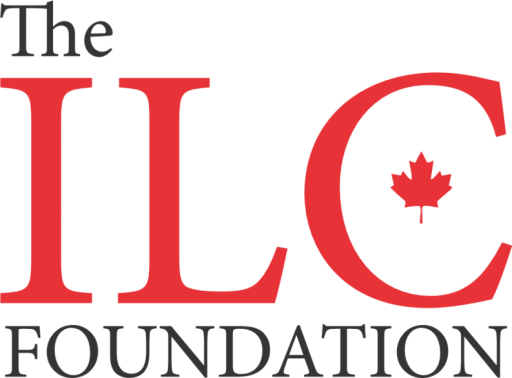Navigating Personal Advocacy
 The more patients use a coordinated effort through participation in surveys, petitions, peer support and/or lobbying government officials, the greater probability the ‘collective voice’ can influence those with decision making power
The more patients use a coordinated effort through participation in surveys, petitions, peer support and/or lobbying government officials, the greater probability the ‘collective voice’ can influence those with decision making power
Patient Experience / Patient Relations Department (AKA: patient complaint department within all hospitals). Use and KEEP using this department. Keep a file of all your communications even if items remain unresolved. When filing a compliant always request due date for their response, and if no response is received that you will continue along the escalation path. *Estimated response / resolution days to months. Remember if the first point of contact in this department has not offered a reasonable resolution feel free to escalate this to the Manager. In the event this step is also not helpful, ask for the escalation path, which is likely a Director, VP ending with the CEO.
Patient Ombudsman. You can call in or use the online complaint form. Recognize that this government body only oversees the administration of healthcare (how the hospital is doing) NOT the clinical judgement of physicians. This office is really about access to care, waitlist times, ongoing communication struggles or ineffective Patient Experience Department processes and the subsequent unresolved issues. *Estimated response / resolution 4-8 months. 1-888-321-0339 http://www.patientombudsman.ca/
Information and Privacy Commissioners Office. When you need to seek out correction to the medical record / ‘Access/ Correction Complaint Form’. This form is available online at the Information and Privacy Commissioners Website and can be used at any hospital. This is vital to ensuring the physicians / hospitals are accountable to the true facts of your or your child’s health experience including imagining, symptom reporting, requests for referral / diagnostics. Efforts to keep a true / accurate record will be needed if you submit a formal complaint down the road in any system. This office can also assist with any concerns of your private health information (collection, use or disclosure). Information and Privacy Commissioner of Ontario 1-800-387-0073 info@ipc.on.ca
Use the College of Physicians and Surgeons (CoPS*). You can file a formal complaint (form is on the website). Being a physician in the province is a licenced profession and doctors have high standards to maintain and if someone is in breach of these professional obligations they can receive a verbal/written reprimand or even lose their licence. If in doubt use the website to review their professional guidelines. Be aware that you will have a much stronger case if you have done steps 1-3 prior to. NOTE: you can call and run a scenario by a staff person but this is NOT a confidential service. * Estimated response / resolution 5-9 months, but often over 1yr. This as a last resort as it can have secondary consequences / reprisal as there can be a real possibility of less care if / when other physicians learn of your complaint and then fear drives avoidance of the stigmatized patient. 1-800-268-7096 x 603 cpso.on.ca
Local Ontario Health (for your area) This is the organizational body that oversees funding to all the hospitals in the area. IF you have exhausted the Patient Experience and Patient Ombudsman, you then have the option to escalate a written complaint here. Familiarize yourself with their website (ie. strategic priorities) as they all have policy goals that often look very different in practice and, the more parallels you can make to your concerns that highlight what is not happening in your case, the better.
Your Elected Representative/ up to and including the Minister of Health MP or MPP for your elected riding. If in doubt just call a local representative and ask who the person is for your postal code. If this is an ongoing or larger issue, seek out the Health Critic of the opposing parties to further your concerns.
The Ministry of Health/ Prior Approval for Out of Country Funding Form. Once you have exhausted all attempts to secure healthcare in your province a patient can request a physician/ specialist to submit the Request for Prior Approval for Full Payment of Insured Out of Country Health Services. 1-888-359-8807 http://health.gov.on.ca/en/public/programs/ohip/outofcountry/prior_approval.aspx#1
The Provincial Ombudsman Office. A person can request a review of a denied MOH Prior Approval Request IF the patient has not already sought out the treatment. You can call in or use the online complaint form. They can not replace the HSARB Health Services Appeal and Review Board* process but may be able to make some inquires or provide contact info on who/ how to escalate the concern. 1-800-263-1830 https://ombudsman.on.ca/contact-us
Health Services Appeal and Review Board (HSARB)*. A person can request an appeal of a denied MOH Prior Approval Funding Request. If you believe that OHIP’s interpretation of the Health Insurance Act and its Regulations were incorrectly applied to your circumstances, you can request an appeal. These are court like proceedings, the applicant will be responsible to present evidence, call witnesses. Many individuals use a lawyer or a friend or family member as their representative. There can be a paper review or a public hearing. Transcripts are available. 1-866-282-2179 http://www.hsarb.on.ca/
Health Professionals Appeal and Review Board (HPARB). A person can request a paper review or hearing to review/ appeal the decision of the CoPS*. This is an independent of govt. agency, their powers / process is outlined in the Regulated Health Professions Act. These are court like proceedings, the applicant will be responsible to present evidence, call witnesses. Many individuals use a lawyer or a friend or family member as their representative. There can be a paper review or a public hearing. Transcripts are available. 1-866-282-2179 http://www.hparb.on.ca/
Put ALL things in writing at ALL times (and keep your own record of communications and any responses). This includes your symptoms and requests for referral / or tests and leave a copy with the physician with written and verbal request for it to be added to the medical record. This also includes following up on all verbal complaints (to those you have reached out to) with a written summary / minutes of meetings, including all that was shared and the subsequent response.
Request a copy of all your reports (consultations/ imaging etc.). Most primary care physicians will provide a copy of your results / reports upon request. Every hospital has a patient records department of which you can complete a form to request any records. Typically, cost is approx. $30 / 20-pages. You can also request time to view your file prior to making a records request. Generally, imaging is available 24 hours after it is completed, thru the film library. There is normally a fee for imaging to be burned to a CD, unless it has been requested by another specialist / institution. The price is usually the same if you are requesting one image or all images done within that hospital.
Keep a written record of all appointments, investigations and trips to the ER. You can also request a copy of your health care record, which is a list of items billed by your OHIP card.
Familiarize yourself with the “Excellent Care for All Act” AND the “Patients First Action Plan for Health Care” documents**. These documents summarize what has been developed to ensure all individuals are able to access the best care possible in a ‘patient focused’ way. Find references in this document to stress or highlight what is not currently available for you.
- http://health.gov.on.ca/en/pro/programs/ecfa/legislation/hqo.aspx
- http://health.gov.on.ca/en/ms/ecfa/healthy_change/docs/rep_patientsfirst.pdf
Become an Advocate
Your Elected Representative can help:
Write a letter to your Provincial and Federal Representative to let them know your concerns about the challenges to receive pain management that includes having a family doctor that has diagnostic criteria and treatment plans. You can include the following statement/statistics to validate your experience:
“The ILC Charitable Foundation provide community based support to children and families with complex pain problems and recognize the need for cohesive collaborations among all stakeholders for the development of a National Pain Strategy. The Canadian Pain Society (CPS) report that 2.2 in 44 children and youth and 1 in 5 adults live with chronic pain. Chronic pain in children and families have a negative and devastating effect that are seen in the form of physical disability, a high rate of school absences, missed work, significant sleep disruption, distress and other psychological difficulties, tremendous strain on families, high financial costs to families and the health care system, and, perhaps most importantly, a very poor quality of life. While chronic pain is often considered a symptom of many diseases, most experts now agree that it is a medical entity worthy of discussion as a disease on its own. It therefore deserves the recognition and priority commensurate with the seriousness of this problem.”
FIND YOUR PROVINCIAL ELECTED REPRESENTATIVE and YOUR MEMBER OF PARLIAMENT
Alberta
https://alberta.ca/
British Columbia
https://www.leg.bc.ca/mla/3-1-1.htm
Manitoba
https://www.gov.mb.ca/legislature/members/index.html
New Brunswick
https://app.infoaa.7700.gnb.ca/gnb/pub/ListMLA1.asp
Newfoundland
https://www.assembly.nl.ca/
Northwest Territories
https://www.gov.nt.ca/research/mla/index.html
Nova Scotia
https://nslegislature.ca/index.php/people/
Nunavut
https://www.assembly.nu.ca/
Ontario
https://www.ontla.on.ca/web/home.do
Prince Edward Island
https://www.assembly.pe.ca/
Quebec
https://www.assnat.qc.ca/en/index.html
Saskatchewan
https://www.legassembly.sk.ca/
Yukon
https://www.gov.yk.ca/
Members of Parliament
https://www.parl.gc.ca/common/SenatorsMembers.asp?Language=E

